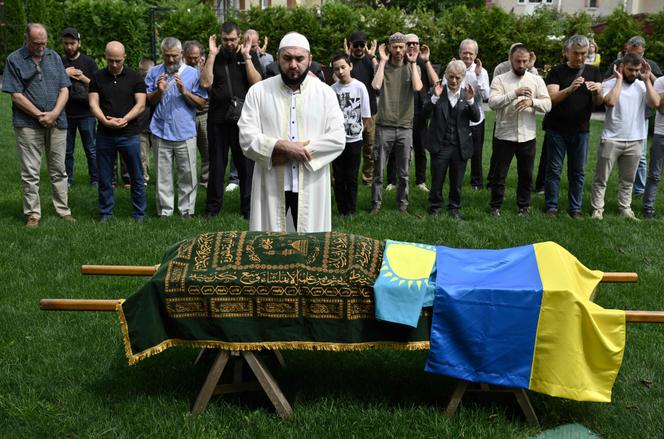


When Aidos Sadykov, a Kazakh opposition journalist, was shot in the head at the wheel of his car in broad daylight in downtown Kyiv on June 18, his wife, Natalia, was at his side. "We were driving through the courtyard of our apartment building when I saw a man in a dark cap, glasses and beard, pointing a pistol with a silencer at us," she said. "I shouted, 'Aidos, get down!' But just then, a bullet shattered the driver's side window and hit him." After 13 days in intensive care, the 55-year-old journalist and father of three succumbed to his injuries on July 2.
Ukrainian investigators soon identified two suspects, both Kazakh citizens. Arriving in Kyiv on June 2, Meiram Karatayev, 33, and Altai Zhakanbayev, 36, rented two apartments to monitor Sadykov before murdering him on the orders of an "unidentified person," according to the Ukrainian prosecutor's office. The suspects then fled to Moldova.
Unveiled by Kazakh journalists, their links with Kazakhstan's special services are fueling the hypothesis of a murder ordered from the upper echelons of the state. According to the independent media service Respublika, Karatayev worked first as a local police officer and then in the special forces in the Kostanay region, before continuing his service in Almaty. The other suspect, Altai Zhakanbayev, was linked to the National Security Committee, the country's main security service, according to journalists from Radio Azattyk, the Kazakh branch of the American station Radio Free Europe. After Moldova, Zhakanbayev returned to Kazakhstan, where he handed himself in to the police on June 21, while Karatayev, still at large, was placed on Ukraine's wanted list.
Kazakhstan denies any involvement, including the assailants' links with the national security services. The country's president, Kassym-Jomart Tokayev, reacted the day after the assassination, stating that "Kazakh official bodies are ready to join the investigation to help reveal the truth." But there is no guarantee that the two suspects will ever be brought to justice. While the Ukrainian authorities are ready to charge them, Kazakhastan is not willing to extradite the one who turned himself in, Zhakanbayev. The president of the Kazakh senate suggested that his extradition to Ukraine was impossible, as "national legislation does not allow this in principle."
This murder casts a dark shadow over the hitherto rather peaceful relations between Ukraine and Kazakhstan, as Sadykov enjoyed political refugee status, granted by the Ukrainian authorities in 2014. From his exile, he had launched his channel, BACE, on Telegram, YouTube and other social media and had more than one and a half million subscribers. A fierce critic of the Kazakh government, the journalist mainly relayed local protests, particularly those that took place in Janaozen, an oil town in the east of the country that frequently experiences labor protests.
You have 32.9% of this article left to read. The rest is for subscribers only.
